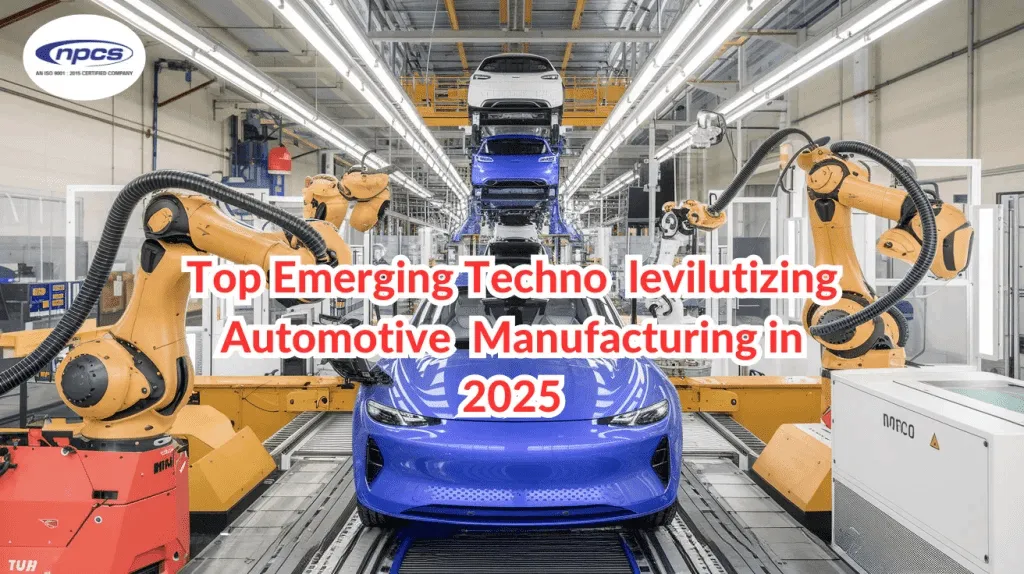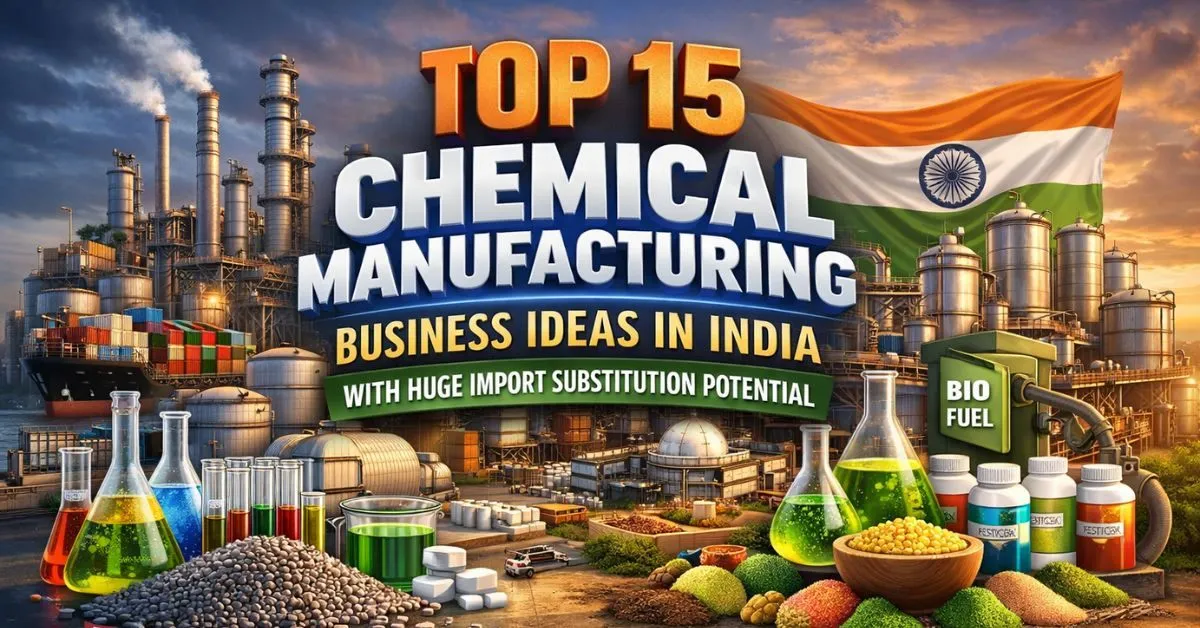The automobile industry is getting a tremendous transfusion now with all the recent technologies promising new ways of manufacturing, improving efficiencies, and changing the design of vehicles. As we continue into 2025, several emerging technologies will also transform the automotive factory. This article lists the top technologies in the automobile industry and how they can impact its future.
Contents
- 0.0.1 1. Artificial Intelligence (AI) and Machine Learning
- 0.0.2 2. 3D Printing in Automotive Manufacturing
- 0.0.3 3. Robotics and Automation
- 0.0.4 4. Internet of Things (IoT) in Automotive Manufacturing
- 0.0.5 5. Augmented Reality (AR), Virtual Reality (VR)
- 0.0.6 6. Sustainable Manufacturing Technologies
- 0.0.7 7. Digital Twin Technology
- 0.0.8 Conclusion
- 1 Frequently Asked Question
1. Artificial Intelligence (AI) and Machine Learning
AI is destined to become a revolutionary power in the automotive industry. By 2025, its application will not only include the independence of the vehicle but will be a driving force to optimize operations and improve quality control within production lines. AI will foresee possible issues in the manufacturing process before they arise, thus reducing downtime and waste. Manufacturers will use machine learning tools to analyze huge sets of production process-related information to improve decision-making, streamline supply chains, and even suggest design improvements.
AI applications for predictive maintenance can enable manufacturers to catch their machines before they break down. This can thus save a considerable amount of money and have a more reliable, productive production system.
Example: Tesla and BMW are already using applications to optimize their production processes and reduce errors at their manufacturing plants. These applications are expected to proliferate by 2025.
Read Our Project Reports
- Auto Brake Pad and Auto Brake Shoe Production Business
- PLASTIC INJECTION MOULDING PLANT FOR AUTO PARTS: Manufacturing Plant, Detailed Project Report, Profile, Business Plan, Industry Trends, Market Research, Survey, Manufacturing Process, Machinery, Raw Materials, Feasibility Study, Investment Opportunities
- Helmet Manufacturing
2. 3D Printing in Automotive Manufacturing
3D printing has added value to automotive manufacture as well as produced parts of complex nature without waste. Traditional manufacturing methods usually involve removing material to thus develop an object, while 3D printing builds layer by layer, thereby being efficient and economical.
3D printing is now currently revolutionizing the manufacture of light, customized parts for vehicles in the year 2025. From prototypes to end use, this technology will radically impact the design and manufacture of automobile components. Rapid prototyping and time transformation from one design to engine use will cut across all barriers.
Example: Companies like GM and Volkswagen have been investing in 3D printers with future plans of producing engine parts and interior features with this technology.
Also Read:
3. Robotics and Automation
But the innovations of 2025 will take robotics and automation to a different level entirely. These family robots will have a character that focuses on applications of manufacturing where humans will spend time with machines to help improve efficiency by reducing their errors. Such robots work in factory operation with humans for better performance but never replace them.
The AI enables such higher robots to understand and adapt themselves according to various tasks proving to be highly possible. Besides an assembly line, cobots may assist in quality control, sorting, and even transporting materials in the factory. Thus, this robotics is capable of increasing both speed and precision, thus further decreasing the production cost, and more so encourages better manufacturing efficiency.
For example, Audi and Ford have implemented the use of cobots within their assembly lines, and this trend is going to be greatly accentuated in the year 2025.
4. Internet of Things (IoT) in Automotive Manufacturing
The Internet of Things (IoT) is literally the net that links devices through the Internet to directly exchange data and commands without requiring further intervention by a human. It allows the whole industry to perceive the importance of huge amounts of real-time data collected and analyzed for production processes.
It includes health monitoring of machinery, tracking parts and components within supply chains, and identifying flows not easily perceived. IoT is estimated to build “smart factories” by 2025; that is, every production process is interconnected to allow seamless operations.
For instance, currently, companies such as Bosch and Siemens are extracting more from IoT in their manufacturing systems, thus promising much when the technology is implemented.
Also Read:
5. Augmented Reality (AR), Virtual Reality (VR)
Augmented reality and virtual reality are also transforming the automotive manufacturing world, enabling improved design processes and training. With the use of these technologies, car designers will realize that there’s less error and enhanced design processes in bringing new models before physical prototypes are created.
For the employees, real-time and hands-free instructions may be guided through complex assembly tasks through AR. In that manner, the chances of human errors are reduced and the time to train is shortened. Increasingly, VRs are used for training purposes, imitating real-world experiences and providing an indulgence and safe environment.
Example: Like Mercedes-Benz, which has included AR glasses in the assembly task of technicians, Ford uses VR for training purposes.
6. Sustainable Manufacturing Technologies
Ever since the year 2020, the automotive industry has slowly but steadily been moving towards sustainable manufacturing practices. By 2025, more and more manufacturers will have started employing technologies directed toward reducing the effect of their performance on the environment. These technologies are inclusive of the use of renewable energy, the implementation of eco-friendly materials, and processes that would conserve water.
The most significant technology at this point is the reprocessor, whose input is recycled material to produce a vehicle. Innovations made possible by material science are bringing us closer to the prospect of recycling components such as plastics, aluminum, and steel with the same efficiency now.
7. Digital Twin Technology
It is a new concept that allows organisations to create perfect copies of their entire production systems in a virtual environment. This digital model allows users to simulate and test various manufacturing scenarios, identify problems before they arise, and capture efficiencies.
Using a digital twin, all manufacturing procedures may be improved, downtime reduced, and intelligent facilitation of incoming technologies assured. By 2025, this will integrate into the whole auto manufacturing process to make more efficient, responsive, and flexible systems of manufacturing. Example: Firms like Toyota and even Ford are already trying their hand at this kind of technology with the aim of optimizing production process efficiency in the whole company.
Read Our Books
- The Complete Book on Production of Automobile Components & Allied Products ( Best Seller )
- Handbook on Electric Vehicles Manufacturing
Conclusion
Indeed, automotive manufacturing in the year 2025 would appear to promise new horizons because of the disruptive potential of emerging technologies. It integrates artificial intelligence, 3D printing, robotics, IoT, AR and VR, sustainable manufacturing, and digital twins for transforming the way of design, production, and delivery of automobiles, and as these technologies keep improving, they will lead towards the most efficient, sustainable, and economical manufacturing practices, reshaping the industry into the future.
Keeping pace with the changes in technology is quite essential for an automotive manufacturing business. If you wish to know more about these in-depth technologies and the way they impact your operations, you should try to find out about the NIIR Project Consultancy Services and other similar resources to explore those things deep enough and for expert guidance.
Contact Us
Frequently Asked Question
What are the top emerging technologies in automotive manufacturing for 2025?
Key technologies include electric vehicle platforms, artificial intelligence, robotics and automation, additive manufacturing, digital twins, and smart factory systems.
How is artificial intelligence transforming automotive manufacturing?
AI improves production efficiency through predictive maintenance, quality inspection, demand forecasting, and optimized supply chain management.
What role do robotics and automation play in modern automotive plants?
Robotics and automation enhance precision, reduce production time, improve worker safety, and support high-volume manufacturing with consistent quality.
How does additive manufacturing benefit automotive manufacturers?
Additive manufacturing enables rapid prototyping, lightweight component production, reduced material waste, and faster design iterations.















